- | 9:51 am
How to buy eco-friendly and ethical sweatpants, sweatshirts, and loungewear

Sweatpants should be the easiest decision in your wardrobe. But as a category, as sweats come down from their quarantine-induced sales peak, a closer inspection of your favorite cozy separates might be in order. Reworking our wardrobes can be an opportunity to reshop with a conscience (and donate what we no longer need), and that extends to even the most casual of staples. Here are our favorite sustainability-minded brands for sweats and loungewear.
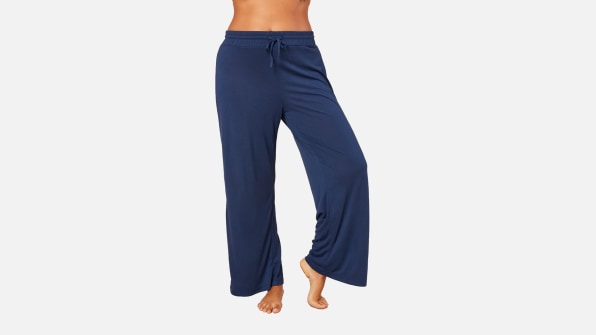
[Photo: courtesy Andie]
ANDIE
Andie—better known for creating suits-for-every-body swimwear—recently entered the loungewear game, offering all-day-wear separates made with plant fibers. The company’s U.S.-made Eco Bamboo pants, tanks, shorts, and tees drape like silk and feel like modal thanks to a 50-50 blend of woven bamboo and recycled polyester.
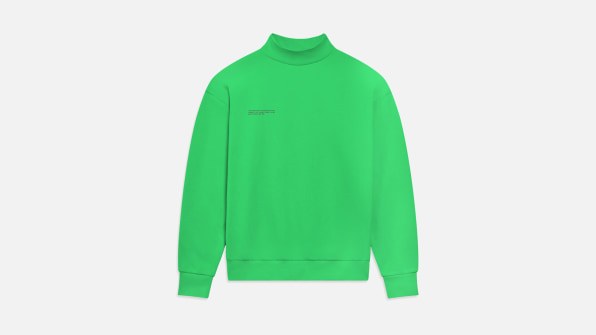
[Photo: courtesy Pangaia]
PANGAIA
Pangaia—as its name suggests—looks to Earth to create plant-based fabrications and garment solutions. (Think: a peppermint oil-infusion finish called PPRMINT that offers odor control and an antimicrobial treatment enabling fabrics to stay fresher longer.) Its sweats don’t take a back seat, either—using repurposed production scraps and rain-fed organic cotton for luxuriously unique and modern matching joggers and tops. Available in women’s and men’s styles.
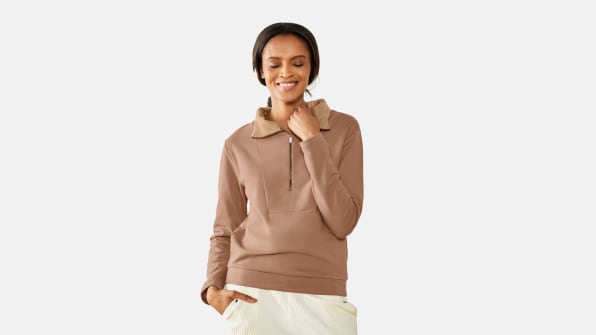
[Photo: courtesy ADAY]
ADAY
Women’s capsule-wardrobe creator Aday recently released new items using biofleece, a luxurious biodegradable Tencel fabric with a buttery smooth, tightly woven nylon exterior. The brand was inspired by the microplastics that inevitably shed from synthetic fabric and make their way into water sources—claiming that, while the fabric is piling resistant, what fluff it loses decomposes in about 90 days.
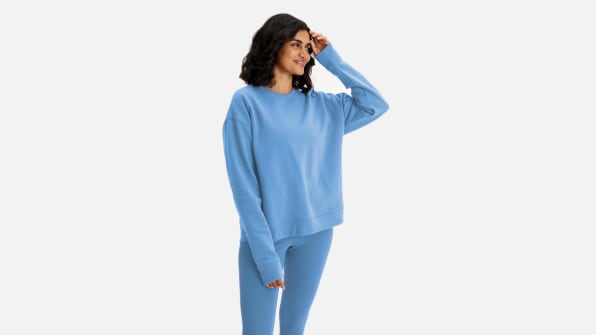
[Photo: courtesy Girlfriend Collective]
GIRLFRIEND
Inclusivity-driven activewear brand Girlfriend Collective reuses post-production fabric scraps and organic cotton to create a biodegradable blend that is as fleece-y and soft as its synthetic siblings. The Bluejay 50-50 sweats collection is available in a range of complementary colors for mix-and-match sets that are gender neutral and available in sizes XXS to 7XL.
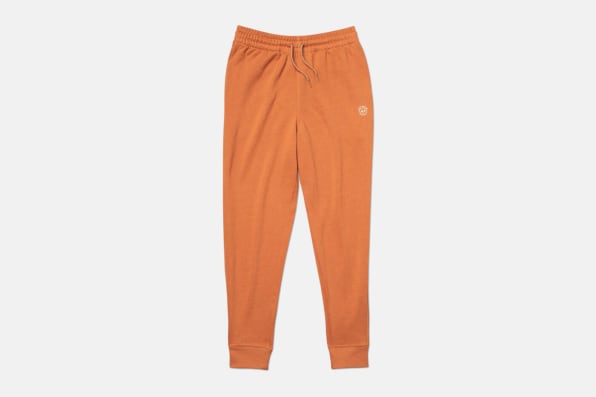
[Photo: courtesy Allbirds]
ALLBIRDS
Allbirds entered the sweats game late last year, bringing colorful, sporty men’s and women’s separates made from a blend of organic Pima cotton, hemp, and an FSC-certified tree fiber called TENCEL Lyocell. The brand even prints each item’s carbon footprint on the product. For example, a women’s R&R sweatpant clocks in at 19.4 kg of CO2 emissions—roughly the same as what is emitted by a gallon of gas in a vehicle, according to Carbonfund.org—but the brand says the item is ultimately carbon neutral, thanks to a balance of credits in sustainability efforts and practices.
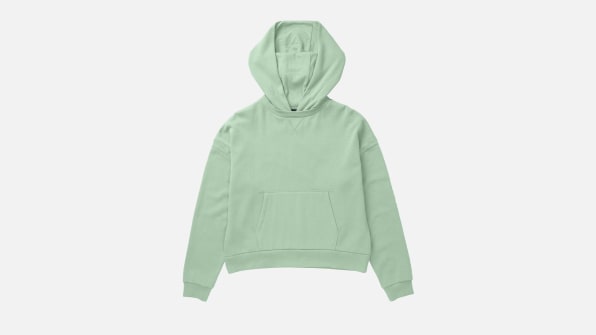
[Photo: courtesy Richer Poorer]
RICHER POORER
Social-minded brand Richer Poorer uses recycled polyester to create their Recycled Fleece Hoodie—a thick, fluffy fabric in a rainbow of trend-driven colors for men and women, made from repurposed plastic water bottles. The result is both pillowy soft and with a heavyweight feel.
LACAUSA
Lacausa uses natural fibers, recycled materials, and deadstock to create most of its breezy womenswear, made, as their name foretold, in L.A. (Lacausa is also a play on the Spanish word for the cause, a nod to its ethical standards and sustainability efforts.) Their sweats lean on organic and post-industrial cotton and rPET (polyester derived from recycled plastic) to create plush, vintage-inspired terry and knits.
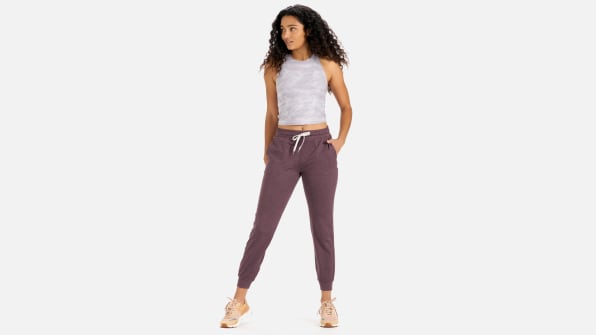
[Photo: courtesy Vuori]
VUORI
Vuori is a post-workout (or post-pizza) dream, with buttery soft, stretchy fabrics that Fast Company editors have long raved about. The cuts are slimmer and sportier but still comfortable enough to wear for overnight travel. While sustainability is already baked into the brand’s main tenets—offsetting its business and manufacturing carbon footprint with Climate Neutral, using recycled and organic materials—Vuori made a pledge to swap in 80% certifiably sustainable materials into their apparel and 80% of plastic out of their shipping and supply chain for 2022.
Fast Company‘s Recommender section is dedicated to surfacing innovative products, services, and brands that are changing how we live and work. Every item that we write about is independently selected by our editors and, whenever possible, tested and reviewed. Fast Company may receive revenue from some links in our stories; however, all selections are based on our editorial judgment.





































